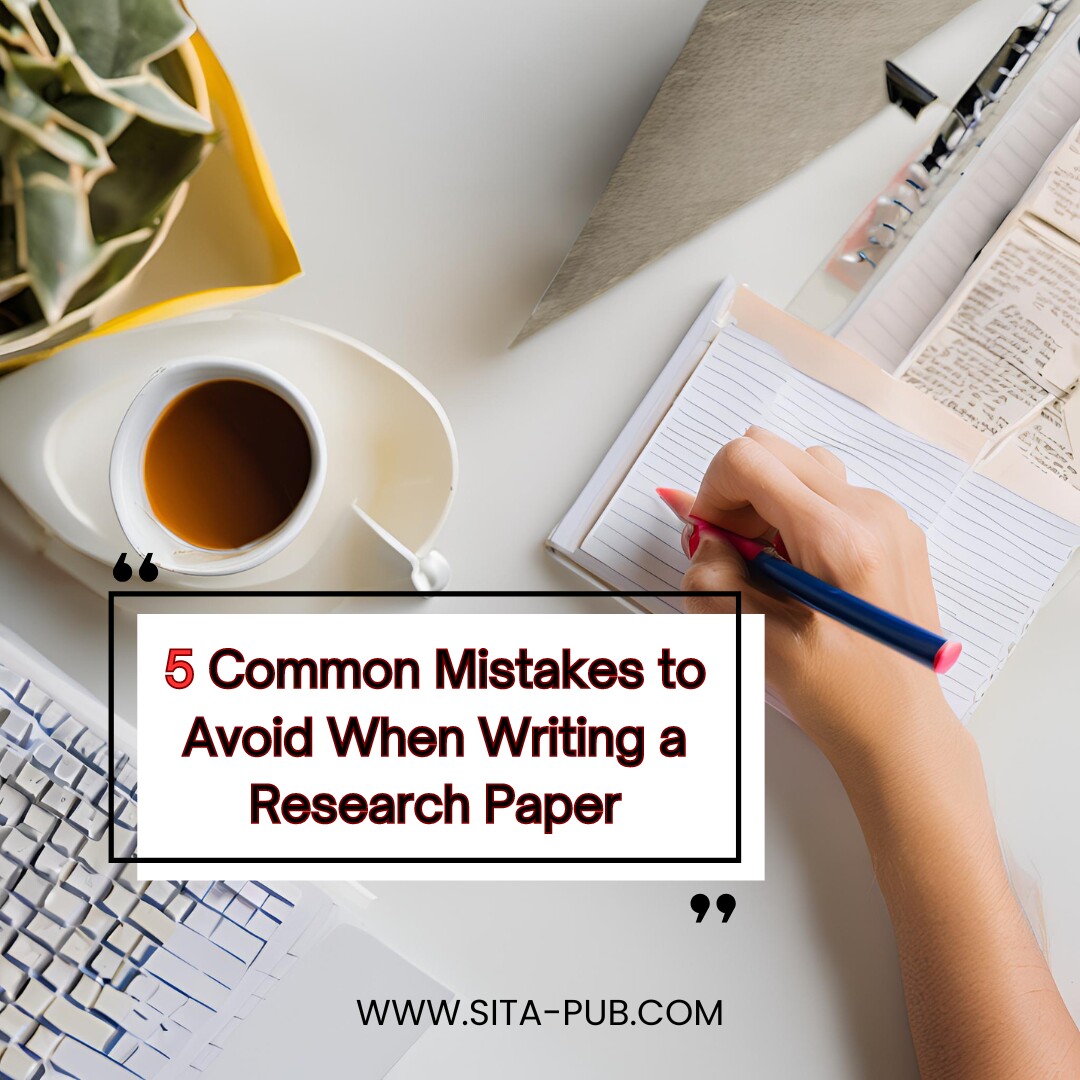5 Common Mistakes to Avoid When Writing a Research Paper


Submitting a research paper is a culmination of hard work and dedication, a testament to countless hours spent researching, analyzing, and crafting your ideas. It's a moment of triumph, but also a potential minefield of pitfalls that can derail your efforts. Even the most meticulous researcher can make common mistakes that limit the impact of their work and even jeopardize its publication.
This guide delves into five common pitfalls to avoid, equipping you with the knowledge and strategies to navigate the research paper writing process with confidence and ensure your work shines brightly.
Plagiarism is a serious problem in academics. Plagiarism is when you use someone else's work or ideas without properly giving them credit.
This is not just about copying words exactly, but also rephrasing things without citing the source. The results of plagiarism can be very bad. Your paper could be rejected, you could be kicked out of your program, and it could hurt your reputation as a student.
Familiarize yourself with the different types of plagiarism and the ethical guidelines that govern academic writing.
Use a consistent citation style throughout your paper, ensuring that every borrowed idea, fact, or piece of data is properly attributed.
When paraphrasing, ensure you are rephrasing the original text in your own words and using your own unique style.
Tools like iThenticate can help identify potential instances of plagiarism and ensure your work is original.
If you are unsure about proper citation practices or have questions about avoiding plagiarism, consult with your professor, advisor, or a writing center.

Every journal has specific formatting guidelines that must be followed. These guidelines cover everything from font type and size to margins, spacing, citations, and reference lists. Neglecting these standards can make your paper look unprofessional and difficult to read, potentially leading to rejection. It also demonstrates a lack of respect for the journal's standards and the scholarly community.
Before you begin writing, thoroughly review the journal's formatting guidelines, paying close attention to every detail.
Maintain consistency in your formatting throughout the entire paper, ensuring that all elements adhere to the specified guidelines.
Before submitting your paper, carefully review your formatting to ensure it meets all the journal's requirements.

Mistakes in your writing, like typos, grammar errors, and inconsistencies, can make your research seem less reliable and your paper look messy and unprofessional. Even just one little typo can distracts the reader and make your arguments less effective. It's really important to carefully proofread your paper to make sure it's accurate and clear. This will improve the overall quality and professionalism of your work.
This helps you catch errors that you might miss when reading silently.
Step away from your paper for a while and come back to it with fresh eyes.
Word processing programs offer spellcheck and grammar check features, but they are not foolproof. Consider using additional proofreading tools like Grammarly or ProWritingAid for a more comprehensive review.
Ask a friend, colleague, or mentor to read your paper and provide feedback on its clarity and accuracy.

If English is not your first language, consider seeking professional editing from a native English speaker. They can help ensure your paper is grammatically correct, clear, and free of awkward phrasing or cultural misunderstandings. A well-edited paper will make a strong impression on reviewers and editors, showcasing your research in its best possible light.
Look for editors with experience in your field and a proven track record of delivering high-quality work.
Communicate your specific needs and expectations to the editor, ensuring they understand your goals for the paper.
Give the editor ample time to review and edit your paper, ensuring they can provide thorough and effective feedback.

While research papers are based on facts and evidence, they need a compelling narrative to engage readers and make a lasting impression. Avoid simply presenting a series of facts without connecting them to a larger argument or theme. Your paper should tell a story, not just list data points.
Clearly articulate your central argument and the key points you will explore in your paper.
Organize your research in a way that leads the reader through your argument, using transitions to connect your ideas and guide the reader through your reasoning.
While maintaining academic rigor, use descriptive language and engaging examples to bring your research to life.
Address your readers directly, using rhetorical questions and engaging language to keep them interested and invested in your research.

Visual aids: Use figures, tables, and charts to present your data effectively and enhance the visual appeal of your paper.
Ethical considerations: Ensure your research adheres to ethical guidelines, including informed consent, data privacy, and responsible use of research findings.
Publication ethics: Familiarize yourself with the ethical principles of academic publishing, including plagiarism, authorship, and conflict of interest.
SITA understands the challenges of navigating the research paper writing process. We offer comprehensive support services to help you overcome common pitfalls and ensure your research shines.
Our services include:
Plagiarism Checking and Removal: We use advanced plagiarism detection tools to identify and remove any instances of plagiarism, ensuring your work is original and ethically sound.
Editing and Proofreading: Our expert editors provide meticulous editing and proofreading services, ensuring your paper is grammatically correct, clear, and free of errors.
Formatting to Different Styles: We format your paper according to the specific guidelines of your chosen journal, ensuring it meets all requirements for submission.
Let us help you turn your research into impactful publications that advance your career and contribute to the advancement of knowledge.
If you have any questions, inquiries, or would like to learn more about our services, please don't hesitate to reach out to us. Our dedicated team is ready to assist you.